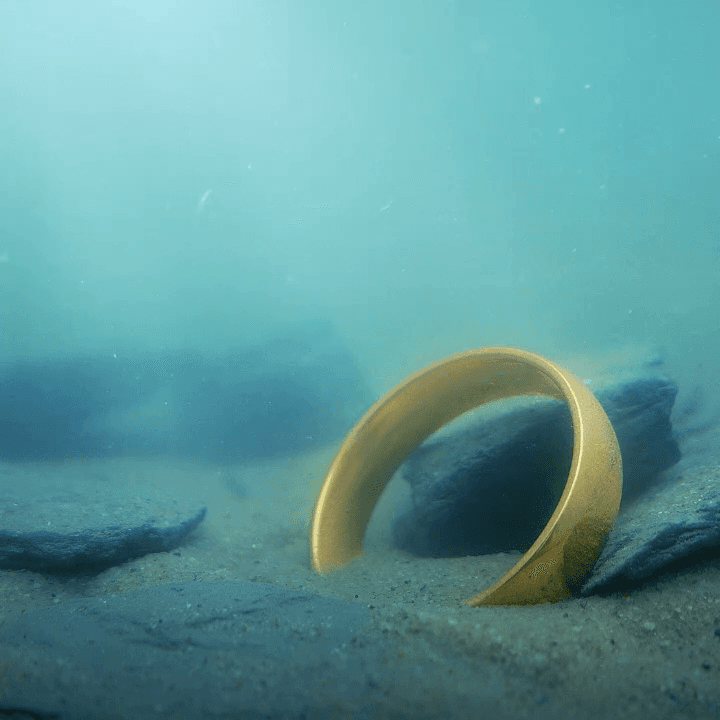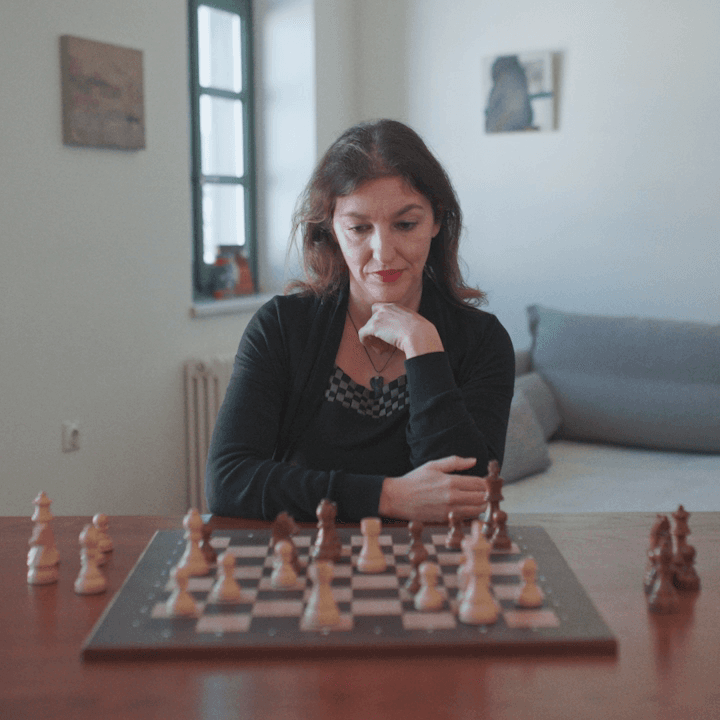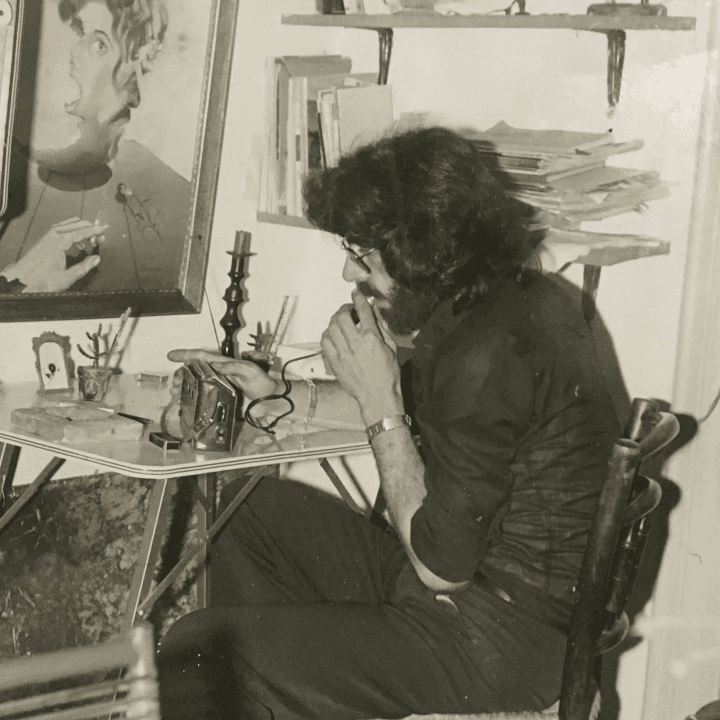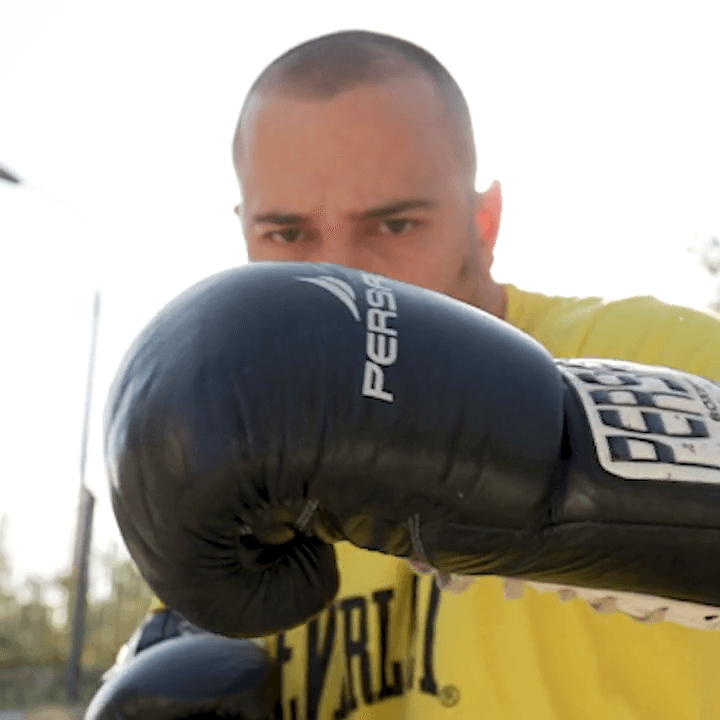Fantasy, in general, was always something that I found attractive. I’ve always loved it very much. From when I was small, as I read a lot of fairy tales, they brought me similar types of books. At a young age, I bought swords and shields. I liked castles and played Playmobil and things like that, so, when later on, I discovered Tolkien, he won me over.
He is ‘responsible’, in quotes, to a great degree for the person I am today and for the many choices I’ve made, the friends I’ve met, and my studies, because I’ve studied Tolkien to an extent, and even published a book at some point. It was an anthology of academic texts that discussed the influences of ancient Greek literature on Tolkien’s work.
From a very young age, Tolkien started to immerse himself in ancient Greek, generally, and later, he chose – probably at the start of his studies – to become involved in the field of classical studies. Along the way, he changed his mind, turning to North Europe, but his love for ancient Greek civilisation did not wane at all, and in his work itself, there are various moments where you would very definitely think that you can see a reflection of a Homeric text, from the Iliad or Odyssey.
Ajax and Teucer are two half-brothers and sons of Telamon, and they are, essentially, heroes of the Iliad, who fight on the side of the Achaeans. Each of them is famous for different reasons. Ajax was most famous for his strength and skill in battle, while Teucer is mentioned less, possibly having been sidelined by Ajax. But I would say that he is the coolest, calmest, and cleverest of the two brothers. We find similar attributes in Boromir and Faramir. Boromir and Faramir are the two sons of Denethor and have similar characteristics to Ajax and Teucer. Boromir is someone who is incredibly powerful in battle and inspires the troops he leads.
And both characters become blinded as they go on. Boromir is blinded by the power of the ring to make you desire it, and so his dark side comes to the surface, if you like, which gradually leads to his death. On the other hand, we have Ajax, who was furious that Achilles’ weapons were ultimately given to honour Odysseus, and because he felt that he had been, let’s say, belittled, he was judged as having failed to live up to expectations to the extent that he tried to murder the Achaean leaders. So, Athena, who had caused him to be blinded, to suffer this mental disorder – call it what you want – compelled him to vent his anger on a herd of sheep. When he came round the next morning and realised the pitiful state he had fallen into, he decided to end his own life by falling on his sword.
Another parallel is an allusion to Atlantis and its fall. On the one hand, we have Numenor, the kingdom of Numenor, which, at some point, decided to attack the land of the gods. The point is that this was the straw that broke the camel’s back, so the gods themselves, the Valar, begged the creator, Elu, to punish the Numenoreans, and the island practically sinks into the sea.
On the other hand, we have the case of Atlantis, where the Atlanteans also lost the favour of the gods. They had tried to attack the Athenians, who were another great power. They were unsuccessful and, on their return, a series of things began to happen: powerful earthquakes and mass destruction, until, finally, it also sank into the sea.
A third parallel, which I like a lot, is generally between the female characters of Tolkien’s world and those of the works of Homer, specifically the Odyssey. And this is essentially a parallel mainly between Galadriel on the one side, and Circe and Calypso.
Galadriel is the lady of light, she is one of the first elves, ancient, with great wisdom and power. Circe is a witch who lives in her own kingdom. Both characters are queens who help travellers on their quests through various gifts they give them, whether large or small. These could be simple clothing, such as tunics, cloaks, etc., up to Galadriel, who, as we know, for example, gave Frodo the Star of Eärendil, in a phial.
We see that, in the case of Odysseus in the Odyssey, both Circe and Calypso advise the hero. They rule and protect an isolated, magic kingdom, such as Ogygia in the case of Claypso, and the kingdom of Lórien, which no one can enter if Galadriel does not wish it. And generally, their role, in both the cases of Galadriel and Circe and Calypso, is to help the hero continue his quest. In both cases, the heroes are in a bad state and need time to recover; in the one, having lost Gandalf in Moria, they go to Lórien, where they find shelter and peace, and, in the other, both Circe and Calypso provide the same thing.
Bilbo and Odysseus are two important characters; they are both leading characters in two books. We have Odysseus in Homer’s Odyssey, and then Bilbo in Tolkien’s Hobbit. Essentially, in both cases, they are two characters who both start on a... A great journey. One of them, Bilbo, wants to help the dwarves that Gandalf has involved him with take back the dwarfish kingdom of Erebor, to drive out, to kill the evil dragon that has occupied the mountain, and take back the kingdom. The other, Odysseus, tries to go to Troy to help the Achaeans capture the city.
I would say the basic thing they have in common is their desire to go home; their love for their homeland; how much they miss it; and their efforts and struggles to get back to it through the various difficulties they have to endure before finally getting back home. Indeed, for both, in a way, it is necessary... in quotes... to ‘clear things up’ to recover their homes. On the one hand, we have Odysseus, who murders the suitors to take back his kingdom. On the other, we have Bilbo, who, when he gets back home, discovers a chaotic situation. They have begun to sell his belongings, because they believe he is dead, because he has been away so long, and he has to begin to claim them back, and win back his home, too, by convincing them that, ‘I am not dead. I am who I was and, quite simply, I am back now’.
What I can say with confidence is that there are definitely other parallels. We couldn’t include them all in the book. And, generally, personally, whenever I’m given the chance to study the world of Tolkien a little more, to dive a little deeper into his universe, whether that be for literary purposes, or academic, or whatever, I generally jump at the chance very happily. And what I can say, to finish with, is that, generally, it has very much defined me as a person, and I believe it will continue to do so. I try to a great extent to live and act according to the good examples, if you like, the good characters. And, at the same time, I see from those who slip and turn towards the dark side what I should avoid. What can I say? If I manage to become like Faramir, I will be very proud. That would be my ideal.










